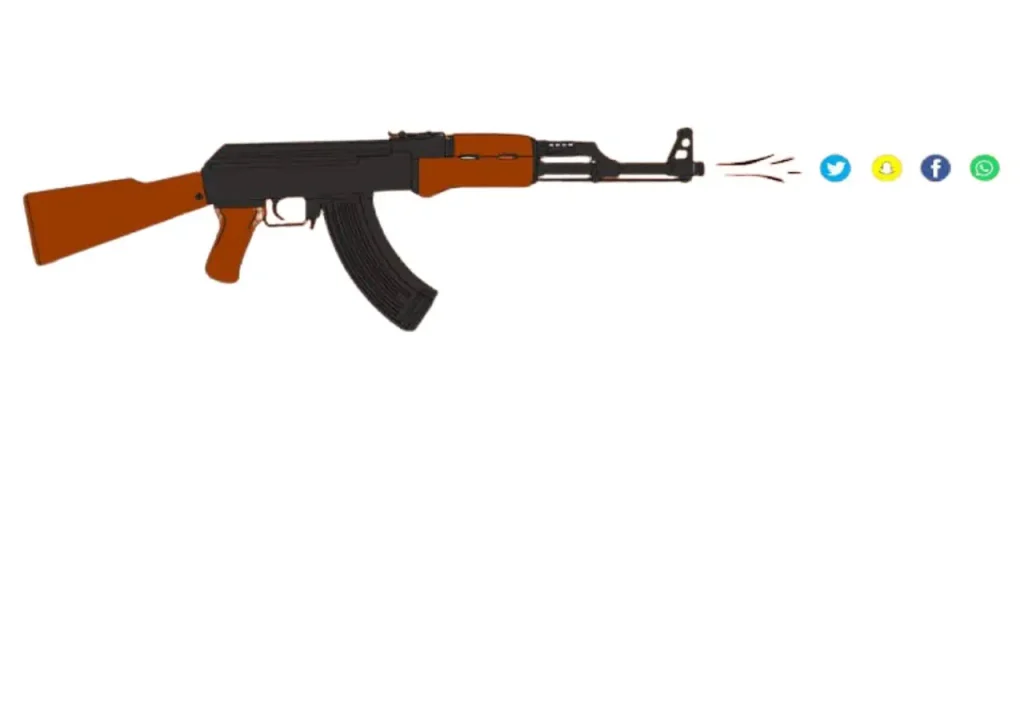THE IMPACT OF SOCIAL MEDIA AND INFLUENCERS DURING CONFLICT PERIODS

Social media and influencers have become very important especially during the time ofwar in this digital era. Through their sway, they may shape public opinion, circulate information fast or even affect the course of some conflicts. Within this blog we will be discussing varied roles played by social media and influencers during times of war, talking both about their advantages and disadvantages.
The Power of Real-Time Information
Twitter, Facebook, and Instagram are now key real-time information platforms. These avenues often provide immediate updates on ground conditions during wars while often avoiding traditional media filters that confine their coverage toa small group. This unfiltered approach enables individuals such as citizens, journalists, and even soldiers to live-stream first-hand experiences of events occurring across the globe.
This immediacy keeps the world audience posted on most things happening around them leading to hastened international response and aid relief.
Influencers as Modern-Day War Correspondents
Influencers are the modern day war correspondents, due to their extensive followershipand personal brands. Unlike traditional journalists, influencers can give life to the conflict through a more personal lens. Vlogs, live streams, and social media posts often document such experiences and observations. By doing so, they help humanize the war so that their followers feel it is happening closer to them not far away places. Influencers have used their platforms as mobilization tools to sensitize masses on issues affecting people in conflicts.
Shaping Public Opinion
The role of social media in shaping public opinion cannot be overemphasized. During wars, narratives can be easily built and propagated through social media. The opinions of influencers who are followed by many people can change public opinion as well as influence decision-making process. This power can also be wielded to advocate for
peace and humanitarian aid among other initiatives geared towards the positive transformation of societies. Conversely, this tool may also be employed wrongly with false news outlets creating propaganda or intentionally spreading rumors that deepen conflicts further apart society’s walls.
Misinformation’s double-edged sword
Subject to the benefits, social media is also not left out of its fair share of drawbacks. The spread of misinformation and disinformation at war times remains a significant concern. Viral false reports, counterfeit images and slanted narratives can quickly deceive people and generate bewilderment. In case they do not ascertain what they share, influencers are likely to actually or unintentionally enhance this development. Such false information hinders diplomacy, causes unnecessary fear, and promotes violence.
Influencers: Ethical Responsibilities
During wars, these individuals who find themselves in positions of great influence in online platforms must take great care of their reputation; for instance, providing reliable verified information without being too sensationalized about it. They need to remember that whatever they say could have serious consequences on society as well as impact world peace positively. Their content can be both informative by partnering with reputable institutions and experts.
Mobilizing for Humanitarian Efforts
Social media and influencers have one of the most positive impacts during wartime as they can mobilize support for humanitarian reasons. Influencers can speedily rally their followers for contributions to relief organizations, backing refugee initiatives, and raising awareness about the needs of those affected by the conflict. Social media campaigns can amass substantial amounts of funds and resources that offer much-needed help in areas that have been faced with wars.
Conclusion
In conclusion, social media and influencers play complex and multiple roles during the war. They become critical channels through which information is passed to people, thus shaping public thoughts, opinions, perceptions, and attitudes towards humanitarian efforts. Nonetheless, we cannot overlook misinformation risks or ethical lapses too. It is therefore important that users of social media platforms and influencers act responsibly so that their input during conflicts promotes peace, accuracy, and humanitarianism. The digital age has changed warfare making social media more important than ever before as tools used by influencers in engaging with these challenges.
My brother suggested I might like this website He was totally right This post actually made my day You cannt imagine just how much time I had spent for this information Thanks
Good https://is.gd/tpjNyL
Awesome https://is.gd/tpjNyL
Awesome https://is.gd/tpjNyL
Very good https://is.gd/tpjNyL
Good https://is.gd/tpjNyL
Very good https://is.gd/tpjNyL
Good https://shorturl.at/2breu
Very good https://shorturl.at/2breu
Very good https://shorturl.at/2breu
Very good https://lc.cx/xjXBQT
Very good https://lc.cx/xjXBQT
Very good https://lc.cx/xjXBQT
Very good https://lc.cx/xjXBQT
Awesome https://lc.cx/xjXBQT
Awesome https://lc.cx/xjXBQT
Very good https://lc.cx/xjXBQT
Good https://t.ly/tndaA
Awesome https://rb.gy/4gq2o4